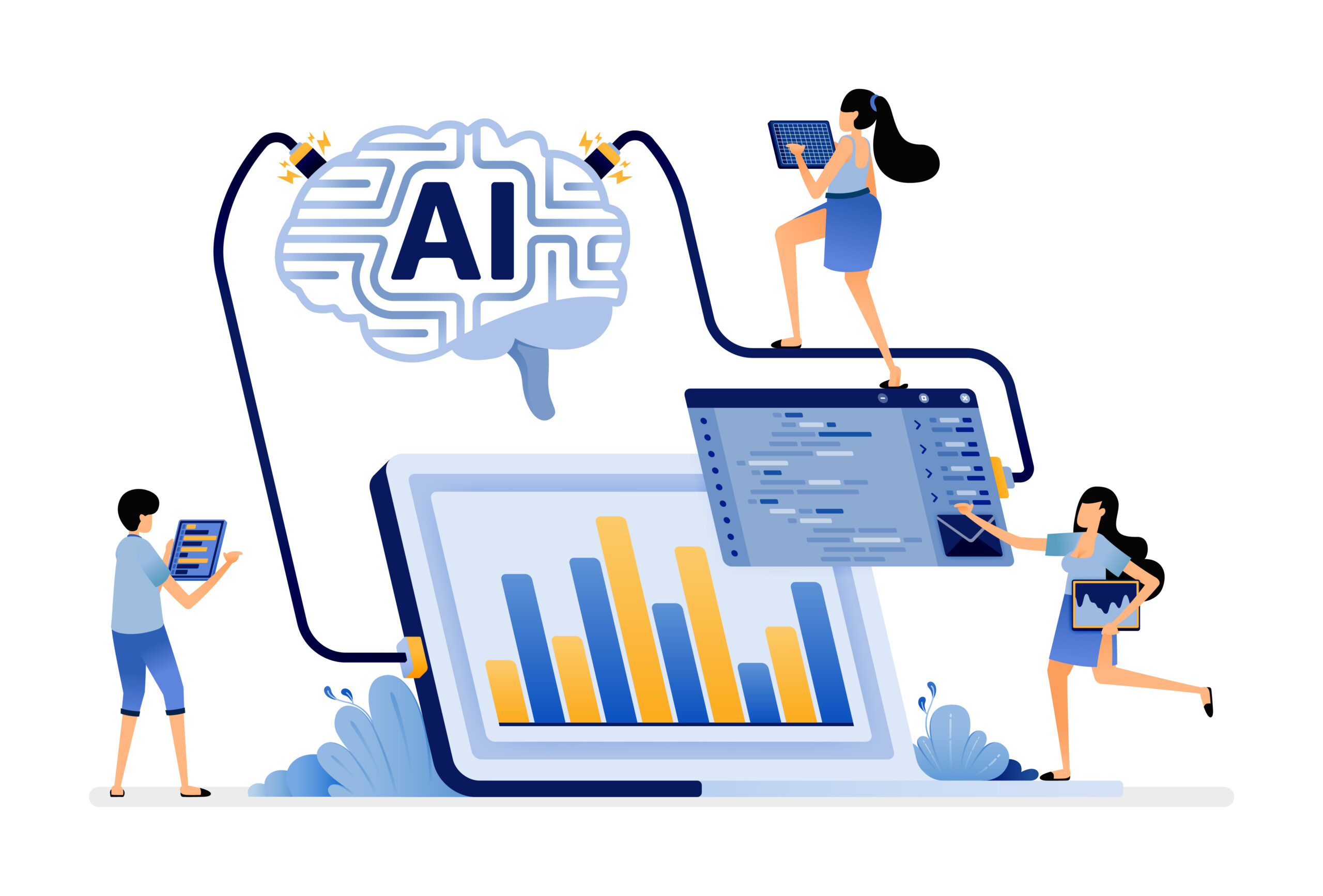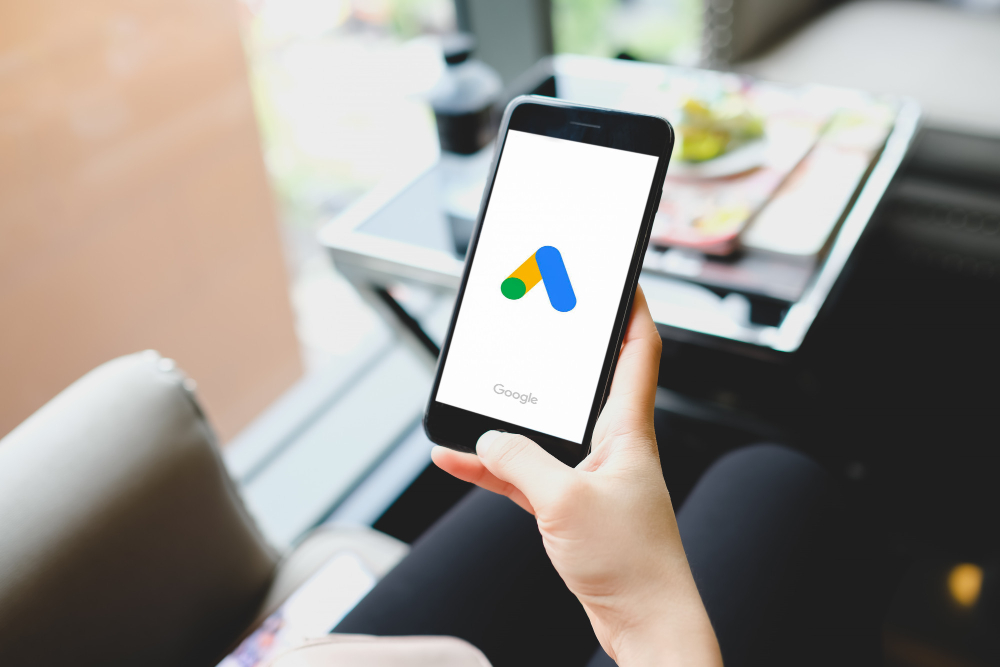Artificial intelligence (AI) is playing a greater role in internet advertising as technology develops. Google Ads is one area of Internet advertising where AI is having a huge impact. One of the most popular online advertising platforms is Google Ads, and marketers are continuously looking for methods to improve the performance of their campaigns. In recent years, generative AI has become a potent tool for enhancing the effectiveness, targeting, and originality of advertisements.
Contents
- 1 What is Generative AI?
- 2 The Evolution of Google Ads: A Look at the Integration of Generative AI
- 3 Transforming Ad Targeting with Generative AI in Google Ads
- 4 Enhancing Ad Creativity with Generative AI: A Game Changer for Google Ads
- 5 Improving Ad Performance with Generative AI: A Data-Driven Approach
- 6 A Glimpse into the Future of Google Ads: The Role of Generative AI in Advertising
What is Generative AI?
A type of artificial intelligence called generative AI uses algorithms to generate new as well as original data. Generative AI is focused on producing new data that is similar to existing data but not an exact copy. In contrast to other forms of AI that often analyze existing data to produce predictions or suggestions.
Large datasets are analyzed by generative AI algorithms to find patterns and connections between the data pieces. After using this knowledge, the algorithm creates new data. This data is somewhat comparable to the original dataset but not a precise duplicate.
The Evolution of Google Ads: A Look at the Integration of Generative AI
The incorporation of generative AI is one of the most significant improvements that Google Ads has undergone over the years. Artificial intelligence that can create content, images, and other media is known as generative AI. Google Ads have been made more effective and efficient thanks to this technology, which has also enhanced user interaction.
Transforming Ad Targeting with Generative AI in Google Ads
By helping advertisers to produce more personalized and pertinent adverts for their target audiences, generative AI is revolutionizing ad targeting in Google adverts. Generative AI algorithms can help advertisers design ads that appeal to their target audience by analyzing massive volumes of user data to uncover trends and preferences.
The capacity to create dynamic advertising that instantly adapts to the user’s situation is the main advantage of employing generative AI in Google advertising. Advertising companies can utilize generative AI to produce advertising that automatically changes based on the user’s location, device kind, and search history. Ad relevance and engagement can be increased in this way, increasing click-through rates and conversion rates.
Another way that generative AI is changing ad targeting in Google Ads is by making it easier for advertisers to recognize and efficiently target particular audience segments. Generative AI can spot patterns and trends in user data, including demographics, interests, and behavior, that can aid marketers in better understanding their target audience.
Advertisers may design more inclusive as well as varied ads with the aid of generative AI. Generative AI can help businesses produce advertising that reflects the wide range of interests and backgrounds of their target audience by analyzing user data to detect cultural trends and preferences. This may result in advertisements that are more genuine and inclusive and appeal to a wider range of users.
Enhancing Ad Creativity with Generative AI: A Game Changer for Google Ads
Because it can completely alter how advertisers conceptualize and design their advertising, generative AI is a game-changer for Google advertising. Advertisers may improve their ad creativity and create more compelling advertising by utilizing the potential of generative AI.
The capacity to produce a broader variety of original concepts and ad versions is one of the main advantages of employing generative AI in ad innovation. Generative AI can provide fresh and creative ideas for ad designs, assisting advertisers in producing more interesting and successful advertisements by analyzing user data and spotting patterns and preferences. Higher click-through rates, conversion rates, and ultimately better ROI for marketers can result from this.
Automated ad production is another way that generative AI is improving ad innovation in Google Ads. Advertisers may quickly and effectively produce a large number of ad variations with the use of generative AI. In addition to saving time and effort, doing so guarantees that adverts are constantly current and pertinent to the user’s context.
By customizing ad creative to individual user preferences and interests, generative AI may also assist advertisers in producing more personalized and pertinent adverts. Generic artificial intelligence (AI) can recommend ad content that is more likely to appeal to a specific user by analyzing user data and finding patterns and preferences. Increased engagement and conversion rates as well as improved user experiences may result from this.
Improving Ad Performance with Generative AI: A Data-Driven Approach
By giving advertisers a data-driven approach to ad optimization, generative AI is enhancing ad effectiveness in Google Ads. Generative AI algorithms can uncover trends and preferences by analyzing enormous volumes of user data, allowing advertisers to design advertising that resonates with their target demographic and ultimately increase ad effectiveness.
Finding the most effective ad pieces is one of the main advantages of utilizing generative AI in ad performance optimization. Generative AI can identify which ad components, such as headlines, pictures, and calls to action, are most effective at generating engagement and conversion by analyzing user data. This can assist advertisers in maximizing the performance and return on investment of their advertisements.
By determining the most efficient audience segments, generative AI can assist advertisers in optimizing their ad targeting. Generative AI can spot patterns and trends in user data. It includes demographics, interests, and behavior, that can aid marketers in better understanding their target audience. Higher conversion rates and more precise ad targeting may result from this.
Automated ad optimization is another way that generative AI is enhancing the effectiveness of ads in Google Ads. Advertisers may dynamically change ad creative, targeting, and bidding depending on current performance data with the use of generative AI. This can improve ad performance, cut down on wasteful ad spending, and boost ROI.
A Glimpse into the Future of Google Ads: The Role of Generative AI in Advertising

The potential of generative AI to significantly impact advertising makes the future of Google Ads fascinating. As AI technology develops, Google Ads will probably incorporate increasingly more complex and advanced AI algorithms. It revolutionizes how advertisers approach online advertising.
Ad personalization is one potential area where generative AI might significantly affect Google Ads. Advertisers might produce highly personalized adverts that cater to unique consumer preferences and interests by utilizing the power of generative AI systems. As a result, the user experience may be improved and engagement and conversion rates may rise.
Automated ad creation is an additional potential use for generative AI in Google Ads. Advertisers might utilize AI algorithms to generate several ad variations automatically. Depending on user data and other pertinent variables. This could provide time and effort savings while guaranteeing that advertisements are constantly current and pertinent.
As generative AI becomes more advanced, Google Ads may implement it in increasingly complicated ways. For example, deep learning algorithms may be used to analyze complex user behavior data and uncover patterns and trends. These can be used to influence ad creative, targeting, and bidding strategies.
If you need the Best Digital Marketing Agency for your Business please contact Bliss Marcom.
Office Address in Noida.


